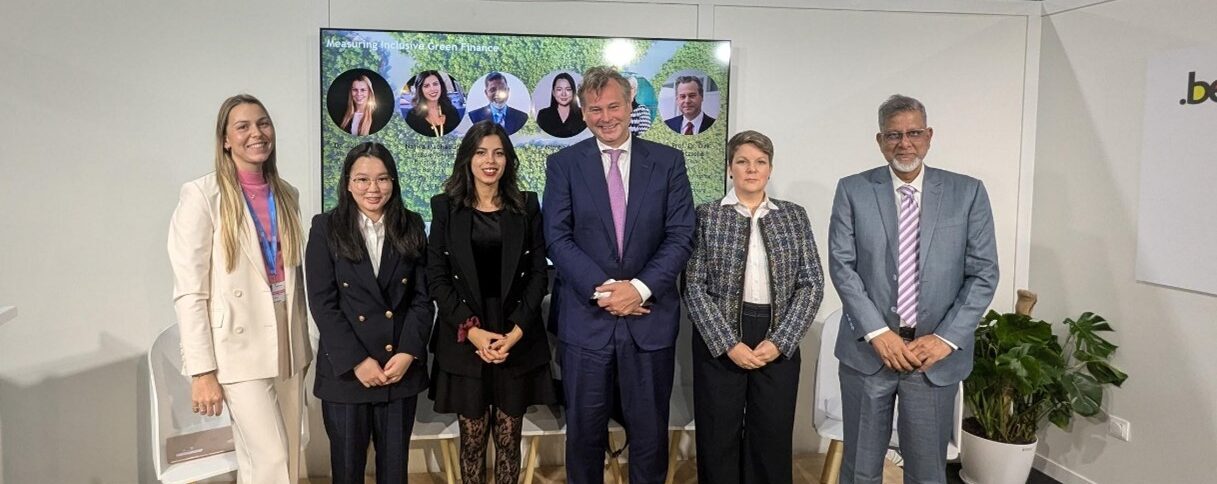Inclusive green finance’s contribution to the global climate agenda was highlighted at a side-event co-hosted by AFI and the University of Luxembourg at the UNFCCC Conference of Parties (COP) 29 in Baku, Azerbaijan.
The event focused on exploring how regulators can develop and implement key performance indicators for Inclusive Green Finance (IGF) policies, and how these can be used to demonstrate impact.
“We need to develop IGF data and disclosures which will allow us to identify, assess, and manage climate-related risk,” said Najwa Mouhaouri, Head of Green Finance, Bank Supervision, Bank Al-Maghrib. “AFI members have been increasingly responding to the need for such data through policy frameworks and through aspects such as target setting, funding availability, disclosure requirements, measurement methodologies, and dissemination approaches.”
“What you cannot measure, you cannot manage,” said Prof. Dirk Zetzsche, ADA Chair in Financial Law and Inclusive Finance at the University of Luxembourg. “Precise measurement of Inclusive Green Finance impacts is a precondition for allocating scarce resources where they matter most.”
“Collaboration is critical to inclusive green finance and impact measurement,” said Helen Walbey, AFI Lead, Global Partnerships. “The AFI Data Portal is a free-to-access, global database on financial inclusion data, generated by members of the AFI network, and we will be happy to work with organizations interested in partnering with us on this vital issue.”
The audience heard expert testimonials from Mongolia and Bangladesh, both of whom have successfully implemented IGF policies. “We are focused on integrating climate risk considerations into financial decision making, and on ensuring that the financial sector not only withstands the challenges posed by climate change, but plays a key role in driving sustainable development,” said Ninjbadgar Khishigbaatar, Senior Officer at Financial Regulatory Commission Mongolia.
“In 2023, we revised our sustainable finance policy, and now have clear definitions around sustainable finance, green finance, and climate finance,” said Chowdhury Liakat Ali, Director, Sustainable Finance Department, Bangladesh Bank. “We have taken a lot of initiatives to engage private finance in the sustainable and climate arena, including introducing a sustainability rating system, where we regularly disclose top performing banks on our website.”
The event, moderated by Dr Julia Sinnig from University of Luxembourg and available to view below, was held at the Benelux-EIB pavilion thanks to the support of the Luxembourg Government. AFI’s Inclusive Green Finance workstream benefits from the support of Agence Francaise de Developpement and the International Development Research Centre.


